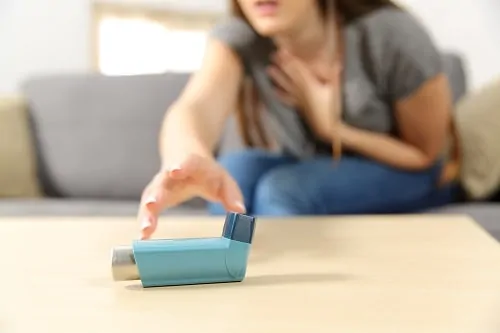
Asthma is a scary, chronic disease that affects over 20 million adults and more than 6 million children in the United States. If not managed and treated proactively, asthma can make it difficult to breathe, cause the chest to tighten, and can even lead to death. At our dental office in Clinton Township, we also know that asthma not only affects your lungs and respiratory system, but can actually have a negative effect on oral health, too.
Since asthma causes the airways that carry oxygen to and from your lungs to become swollen, less air is able to pass through. This can make breathing difficult. When we can’t get enough air or just can’t seem to catch our breath we will involuntarily start to breathe out of our mouths instead of our noses. While mouth breathing can make it easier to breathe, it can also cause dry mouth. Dry mouth occurs when there’s a decrease in saliva production, and that’s when the problems start. Without saliva, the bacteria and acids in the mouth that are typically rinsed away are left to attack teeth. This increases the risk for decay and cavities. Many asthma medications also list dry mouth as a side effect, which can make the problem even worse.
Besides the increased risk for cavities, asthma patients are also more likely to have gum disease. In fact, a survey conducted by the Journal of Periodontology concluded that people with gum disease were five times more likely to also have asthma. Gum disease is another serious disease caused by a bacterial infection. If not treated gum disease can affect the health of the rest of the body including increasing the risk for heart disease, even more respiratory complications, and even some cancers.
If you have asthma, there are steps you can take to reduce your risk of cavities and gum disease including:
We’re always welcoming new patients at our Clinton Township dental office and would encourage you to call to schedule an appointment if it’s been more than six months since you’ve seen a dentist. Preventive dental care, along with a good oral hygiene routine at home, can help protect your smile from cavities, gum disease, and other oral health concerns.